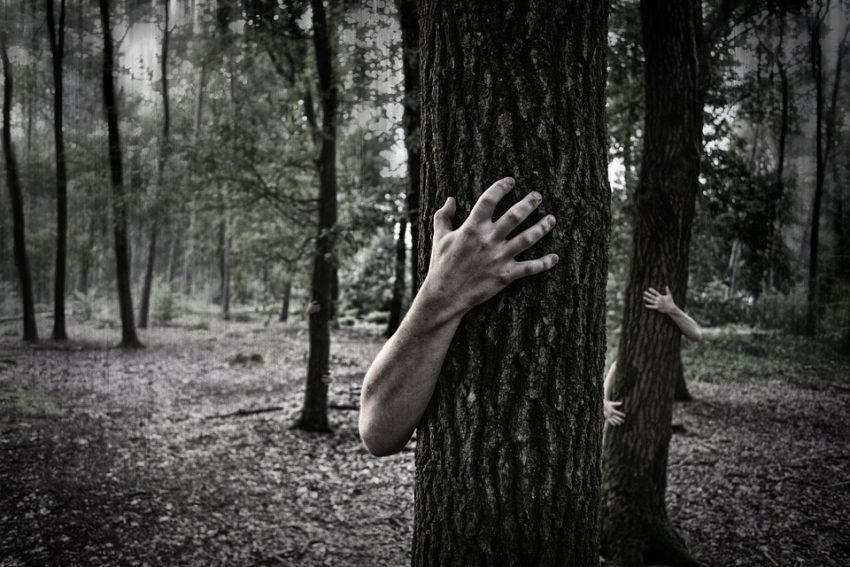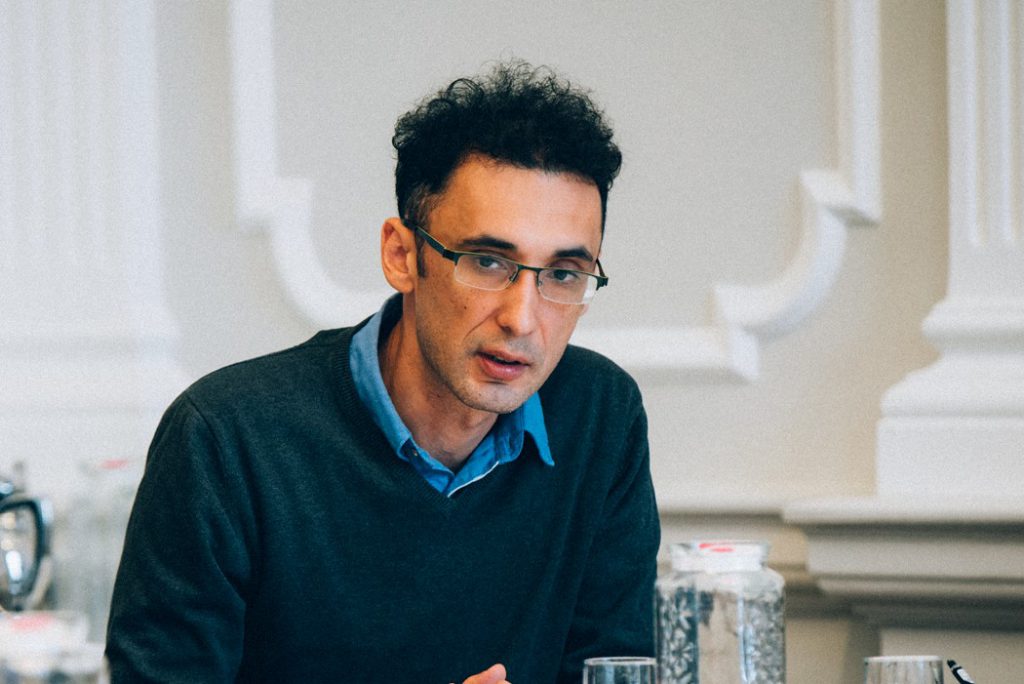Hotline: +381 61 63 84 071
Queer Roma women: We are rejected by our community, we are fraudsters to them

December 19, 2019 by VOICE Team |
“My journey began with an arranged marriage. It didn't last long. I have suffered all forms of violence in that arranged marriage. I left, not sure how exactly... with the support of my mother and and the SOS hotline organization I began volunteering in. I became empowered there, realized all the possibilities, entered women's movement and began making friends, discovering my sexuality along the way. I was 19 years old at the time," queer Roma girl from Vojvodina told Autonomija. She is a women's organization activist, who wanted to stay anonymous just like her other women we spoke with, who are faced with constant discrimination and violence.
Her colleague from Women's Roma Center “Romnjako Ilo” had a similar experience. She is in early twenties, and has already suffered numerous forms of violence and discrimination.
“As a Roma, I was rejected by the society due to my nationality and color. I was also a victim of arranged marriage I managed to escape three months ago. I was aware that I am entering something I shouldn't, but I was unable to refuse it. I have support of my family, but it is all strange now in our Roma community, why I am doing this or that. I hope it will all end well, I am working on it.”
Child and forced marriages are prohibited in Serbia, nevertheless the Family Law provides for the possibility of minors over the age of 16 marrying with the consent of the parents and permission of the court.
“In a legislative sense, things are changing, an initiative has been launched to amend the Family Law in part which allows marriage under special conditions. After the amendment, it will no longer be possible to marry a minor who has turned 16 under any circumstances, therefore, the possibility of legally concluding a child marriage will not exist any longer,” notes Milan Aleksić from NGO Atina dealing with the protection of victims of human trafficking and all forms of exploitation.

Milan Aleksić, photo: atina.org.rs
Another novelty in the fight against child marriage is the formation of a National Coalition to End Child Marriage, initiated by the Coordination Body for Gender Equality, which has held three meetings so far, and is made up of representatives of numerous government bodies, nongovernmental and international organizations.
"The goal is to raise awareness of this issue and make concrete recommendations on how to stop child marriages," Aleksić added. The biggest issue, as he explained, lies in the fact that most child marriages are in the gray area, because they are not concluded before the courts, but per customary, unwritten law.
More than half Roma women in Serbia first entered into marriage before they turned 18, while the percentage of women from the general population is significantly lower, only seven percent. Before the age of 15, a total of 0.8% of girls in general population, i.e. 16.9% of girls in Roma population entered into marriage, as shown by the research of Roma organizations in Vojvodina and UNICEF from 2017.
"The fact is that child marriage affects Roma community, that is, Roma girls, the most," confirmed Milan Aleksić, who has been working in NGO Atina for years, and is the author of a research on child and forced marriages. Nevertheless, he believes that there are no precise statistics on child marriages. "These marriages are legally null and void and there is nowhere to keep those records. Given that child marriage is a form of exploitation, that is, a form of human trafficking, data can be obtained from annual statistics kept by the Center for Human Trafficking Victims Protection, but they do not closely reflect the true numbers, nor true dimensions of this issue," he pointed out.
In such a system, that is traditionally rigid and unjust to women above all, how do these girls feel when they are forced to marry someone, with some of them even being forced to "love" the opposite sex?
Three girls, activists of the Roma Center “Romnjako Ilo”, shared their life stories with us, mostly made of pride, love, discrimination, early marriages and violence.
“This discrimination is present from birth, first of all because I am a Roma, a girl, afterwards during education… It is present in our community, in the general community. The older I get, discrimination grows alongside me... ”, one of them begins her story.
"The worst is when you oppose your customs, because your punishment is a constant struggle"
All three young and brave girls agree that girls have fewer opportunities than boys, both in Serbian and Roma communities.
“First in the family and later in life. Because when a girl is born, at least in Roma family, and I know what it is like in most communities as well, she has no right to education. A boy, a brother, is always the one who has greater rights than a girl, both during school, at home, in the family, and while growing up,” said one of the activists at the Women's Roma Center.
Even when it comes to early arranged marriages, inequality is once again present, as girls have no rights, while boys can choose partners, they can refuse to marry, refuse to accept a person to live with, she added, emphasizing the saddest fact of all, "Girls cannot rebel, and our mothers cannot protect their daughters and fight these arranged marriages”.
“The worst thing is when a Roma woman opposes Roma customs and goes her own way. The punishment she suffers for all of her life is struggle, discrimination, rejection, she survives a lot,” says the youngest of them, from her own experience, as she managed to escape an arranged marriage several months before that, and meanwhile reconsidered not only the idea of marriage but also the idea of a marriage union with a man. "I am now in a group at the Roma Women's Center, and I want as many women as possible to get involved and fight for their rights," she added.
"It is crucial to overcome stereotypes in the wider community"
The main difference between child marriage and forced marriage is that the former is a marital or extramarital union with a minor (who certainly cannot consent, so it is a forced marriage at the same time), whereas forced marriage is a broader term, because it may also refer to adults who have not entered into marriage voluntarily, but under force.
Forced marriage is a criminal offense defined by the Article 187a of the Criminal Code, added to the Code after ratification of the Istanbul Convention of the Council of Europe, which explicitly cites prohibition of forced marriage.
“Considering the whole legislative, and practice on the level of protection and support in the last few years, it can be said that things are going for the better, but much effort is still needed to eradicate child marriage permanently. That is why it is necessary to work with the wider community on changing attitudes and overcoming stereotypes, and not only with the immediate victim or the perpetrator,” said Milan Aleksić from NGO Atina.
Several other young Roma women work together with them at the only women's Roma center that provides shelter but also education on violence, different sexual orientation, child marriages and other topics important for the Roma community. “Romnjako ilo” means “Roma woman's heart”. The organization was registered in 2007, and has existed before that as an informal group of Roma women interested in changing their lives and the lives of other women in the Roma community. The mission of the center is to empower and encourage Roma women and multiple marginalized women of different sexual orientation.
"A Roma woman has no right to think about sexual freedom, a model of heterosexuality is imposed on her by that early arranged marriage. And even if she recognized her sexuality and tried to out herself, she would be rejected by her community, by her family, by everyone,” young queer Roma from Vojvodina felt that injustice personally.

photo: lgbti.ba
"It is incomprehensible for a Roma woman to have a different sexual orientation. If she's not heterosexual, it's abnormal. It is abnormal for me to be educated, to be a successful Roma woman. It is normal, at least as they imagine, to be devoted to family, to be obedient and a good girl, then a woman, and once I marry to be a good mother, to obey family, to be a good daughter-in-law. This is expected of a Roma woman and a girl, and I am none of that,” another girl said.
The first girl adds that some Roma women only discover their sexuality at the beginning of that early marriage, and then they usually hide it and live “within that heteronormativity”.
Almost every Roma girl survived sexual violence
All three now, in their early twenties, want to talk about various forms of discrimination and violence they survived, all because of nationality, violations of imposed norms, and sexual orientation. The life of young Roma, and especially of Roma women, is much more than a concern whether they will be able to do their homework on time, what to wear for school or where to go on an excursion.
"I know of some people who do not admit to being Roma because of discrimination, and I am proud of all those who accept it and are not ashamed of who they are," said one of the activists of the Roma Women's Center "Romnjako Ilo". Another girl adds her personal experience of rejection, “Discrimination I suffered, not only when I entered the LGBT community, but also as soon as I exited the normative framework of Roma community… I divorced, then began volunteering and fighting against everything they practiced. It was abnormal for them to see me speak against violence and early marriages."
Among women from the Banat region of Vojvodina who called the SOS hotline in languages of national minorities, almost every Roma girl (approximately 97%) survived sexual violence, according to 2016 data of the Novi Bečej Roma Association.
"While I was in school, even during high school, I didn't recognize all forms of violence. For me, violence was just physical, until I started working as a volunteer with the Roma association and learned all forms of violence that exist,” said a young Roma woman who has been facing psychological and peer violence for years. She also experienced discrimination in court, in a process filed against her, she claims, without any basis.
“We are rejected by the Roma community. We are fraudsters to them. We all yearn for the sense of belonging, but cannot feel it as we are constantly being rejected. ”
Aware of everything that surrounds them, these three girls from a small place in Vojvodina, are truly changing bad reality through their activist work at the women's center.
"It's been a long journey, and it was difficult to get out of it all, but that economic moment is very important. When we are economically empowered we can do more for ourselves, we can get out of everything, resist both tradition and discrimination and everything we endure each day,” says one of them, while the youngest girl adds how important it is for her to be active in the women's center: “It means a lot to me because I have a space where I can express my rights and move on. I think we need to talk about it as much as possible within the community, and support one another, be solidary." The third girl very optimistically concludes that, although it is harder for her to go through life now, she still feels empowered, “To us as young persons it was important what everyone says, what mom thinks, what dad says, and we wanted them to accept us. Now, even though we are even more discriminated, we are stronger because we have accepted ourselves."
Milica Kravić (Autonomija)
(The text was created within the project "Against hatred and stereotypes, without pathetic and false compassion - professionally and affirmatively” co-financed from the budget of the Republic of Serbia - Ministry of Culture and Information. The views expressed in a supported media project do not necessarily reflect the views of the granting authority)












 FACEBOOK
FACEBOOK TWITTER
TWITTER YOUTUBE
YOUTUBE